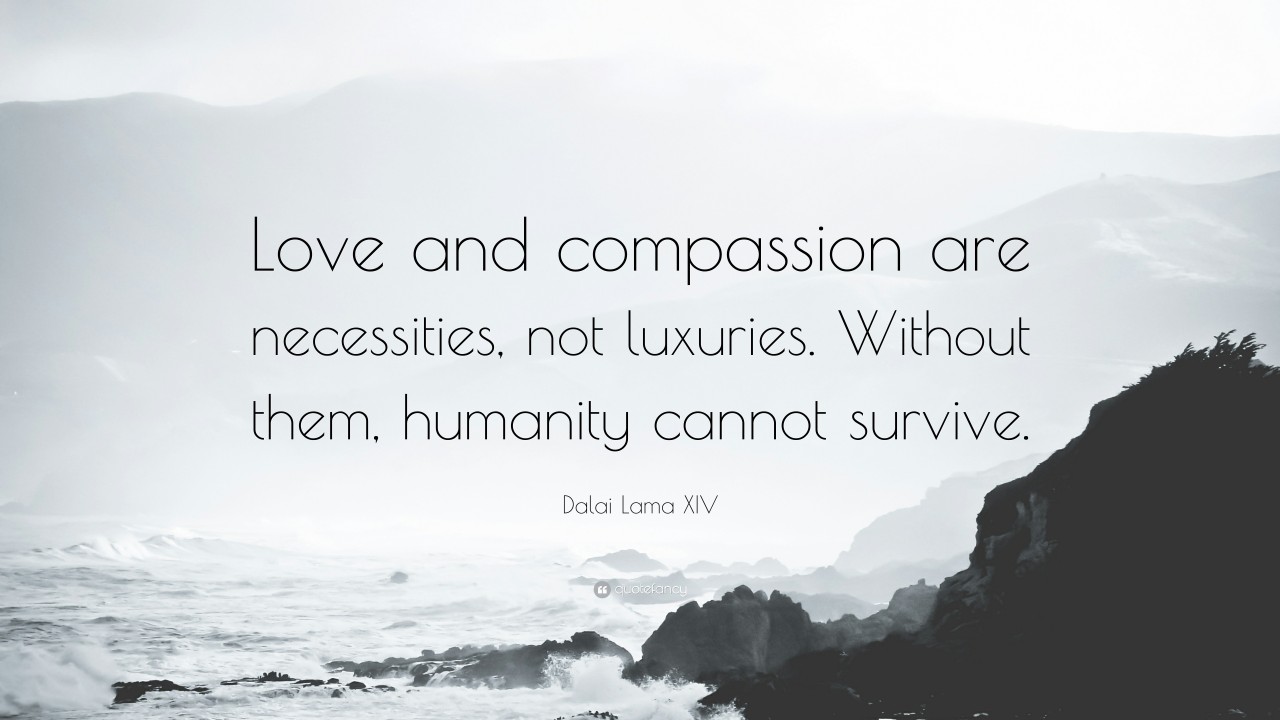Root Of Compassion

By Rodney Bullard
CEO The Same House PBC | Former Senior Executive at Chick-fil-A / Global CSR, ESG and Marketing Leader | Best-Selling Author | Former AUSA | Former Air Force JAG l Corporate and Non-profit Board Director
“Love and compassion are necessities, not luxuries. Without them humanity cannot survive.”- Dalai Lama
Compassion is the recognition of other people’s suffering and taking action to help. The “taking of action” is the primary differentiator between empathy, which is grounded in emotion. While sympathy and empathy focus on feelings, those with Compassion get involved and look for solutions to reduce suffering. Author Fredrick Buechner best describes Compassion in this way:
Compassion is sometimes the fatal capacity for feeling what it is like to live inside somebody else’s skin. It is the knowledge that there can never really be any peace and joy for me until there is peace and joy finally for you too.
We are living in a moment where active Compassion is needed now more than ever. From the coronavirus pandemic, loss of jobs and security to racial injustices and political unrest. In every community, people are suffering. The simplest acts of kindness like askida ekmek can ease someone’s burden and offer hope when meeting basic needs is a challenge.
Suffering is a universal challenge that will affect all of us at some point in our lives. One cannot go through life without experiencing some pain or hardship. It is how we react to it when we are suffering and act when faced with others’ suffering. As said by Nelson Mandela, “Our human compassion binds us to one another—not in pity or patronizingly, but as human beings who have learned how to turn our common suffering into hope for the future.”
But how do we offer hope while still making a difference? We start by listening and showing kindness. Eliminating judgment is the first step toward building a bridge from where we are today to where we want to go tomorrow. We are unaware of where other people have been until we take the time to understand their journey.
A famous story from Reader’s Digest illustrates it best about a father and his three children traveling on a London bus. The father stared out the window while his kids made lots of noise and bothered the other passengers. A woman in a nearby seat leaned over to the father and said, “You need to parent your children better. They are so unruly.” The father apologetically said, “I’m so sorry. Their mother, my wife, just died, and we are returning from her funeral. I think we are all a little overwhelmed. I apologize.”
Caught up in our perceptions, we often fail to understand the circumstances around many events. We look at how we are being affected without finding out why something is happening in a particular way. We don’t see the pain and suffering happening around us because we are not getting below the surface in our interactions with others.
By believing “we are all in this together,” we can strive to commit compassionate acts every day. We can pick up the slack when others fall and appreciate others’ kindness when we are weakest.
Therefore, encourage and build one another up, just as you are. We ask you, brothers, to respect those who labor among you and are over you in the Lord, admonish you, and esteem them very highly in love because of their work. Be at peace among yourselves. And we urge you, brothers, admonish the idle, encourage the fainthearted, help the weak, be patient with them all. (1 Thessalonians 5:11-18 ESV)
We can gather the bridge builders within our community to lift each other. We can act together and ease suffering. By extending our hands and hearts, we heal the brokenness within our fractured communities. These acts spread from person to person, people to communities, and communities to countries. Each story spanning from one destination to the next encourages us to move from empathy to compassion and healing.
